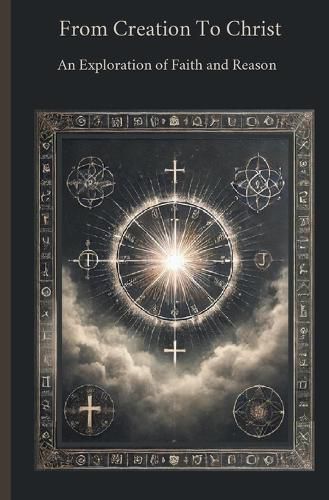Readings Newsletter
Become a Readings Member to make your shopping experience even easier.
Sign in or sign up for free!
You’re not far away from qualifying for FREE standard shipping within Australia
You’ve qualified for FREE standard shipping within Australia
The cart is loading…






From ancient creation myths to the rise of Christianity, religion in the West has served as a tool for shaping societies and maintaining empires. This book examines how systems of faith were designed to legitimize power, revealing the mechanisms of control woven into sacred texts.
From the political motives behind Moses and the Exodus to Rome's strategic adoption of Christianity for unity and conquest, it reinterprets history through the lens of human behavior, exposing a lasting master-slave dynamic that continues to influence Western civilization today.
Many pastors can no longer fully believe what they preach, and when they do, it becomes a case of the blind leading the blind. As long as we cling to the status quo, we will keep reproducing a divided society: the ignorance of the masses on one side and the hypocrisy of the elite on the other.
This book asks a simple question: can faith be restructured to promote truth and social equity? The master-slave dynamic may be rooted in our biology, shaped by the evolutionary drives for dominance and survival, but we are more than animals. Through reason and an honest belief system, we can rise above instinct and build something higher.
Recognizing that the Old and New Testaments represent two distinct theologies offers a way to rethink what we believe. Christianity rests on a false dichotomy of good and evil, not only between God and Satan, but also between the Old Testament's "eye for an eye" justice and the New Testament's command to "love your neighbor." This contrast creates a built-in algorithm for division, mirroring the social order of rulers and the ruled.
By looking at history plainly, this book invites you to confront the contradictions of traditional religion. Why do we cling to outdated dogmas? How can we move beyond the cycles of division and control that have shaped our past?
Here, belief is reimagined, not as dogma, but as a living framework for understanding the unknown. A faith grounded in reason, compassion, and the courage to question.
This is more than a critique of history; it is a map for what might come next. To evolve, we must break from obsolete systems, question inherited beliefs, and build a faith that reflects what we now know of the world and of ourselves.
The early Christians were once accused of "turning the world upside down." Today, we face the same challenge-and the same chance.
This book invites you to rethink God, morality, and human nature, and to imagine a world where faith is honest, practical, and free from fear and control.
$9.00 standard shipping within Australia
FREE standard shipping within Australia for orders over $100.00
Express & International shipping calculated at checkout
Stock availability can be subject to change without notice. We recommend calling the shop or contacting our online team to check availability of low stock items. Please see our Shopping Online page for more details.
From ancient creation myths to the rise of Christianity, religion in the West has served as a tool for shaping societies and maintaining empires. This book examines how systems of faith were designed to legitimize power, revealing the mechanisms of control woven into sacred texts.
From the political motives behind Moses and the Exodus to Rome's strategic adoption of Christianity for unity and conquest, it reinterprets history through the lens of human behavior, exposing a lasting master-slave dynamic that continues to influence Western civilization today.
Many pastors can no longer fully believe what they preach, and when they do, it becomes a case of the blind leading the blind. As long as we cling to the status quo, we will keep reproducing a divided society: the ignorance of the masses on one side and the hypocrisy of the elite on the other.
This book asks a simple question: can faith be restructured to promote truth and social equity? The master-slave dynamic may be rooted in our biology, shaped by the evolutionary drives for dominance and survival, but we are more than animals. Through reason and an honest belief system, we can rise above instinct and build something higher.
Recognizing that the Old and New Testaments represent two distinct theologies offers a way to rethink what we believe. Christianity rests on a false dichotomy of good and evil, not only between God and Satan, but also between the Old Testament's "eye for an eye" justice and the New Testament's command to "love your neighbor." This contrast creates a built-in algorithm for division, mirroring the social order of rulers and the ruled.
By looking at history plainly, this book invites you to confront the contradictions of traditional religion. Why do we cling to outdated dogmas? How can we move beyond the cycles of division and control that have shaped our past?
Here, belief is reimagined, not as dogma, but as a living framework for understanding the unknown. A faith grounded in reason, compassion, and the courage to question.
This is more than a critique of history; it is a map for what might come next. To evolve, we must break from obsolete systems, question inherited beliefs, and build a faith that reflects what we now know of the world and of ourselves.
The early Christians were once accused of "turning the world upside down." Today, we face the same challenge-and the same chance.
This book invites you to rethink God, morality, and human nature, and to imagine a world where faith is honest, practical, and free from fear and control.